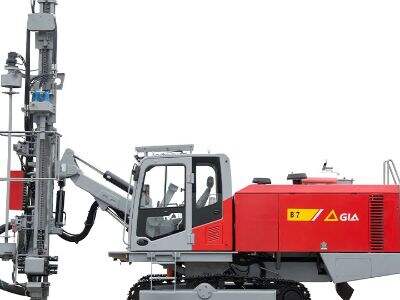Cold outside air can create all sorts of problems for your compressed air system. Moisture — essentially tiny water droplets — can build up inside the system when the weather is too cold. Rust, breaks, and damage to different parts of the system are caused by this moisture. If you don’t prepare your compressed air system to handle the cold weather, you could end up shelling out for costly repairs. If that stage of the system doesn't work, too, you may end up wasting a lot of time.
Cold-Weather Impact on Your Air Compressor
Cold temps can have quite a different effect on your air compressor performance. Air is denser inside the compressor when it is cold This means that the compressor has to work significantly harder to produce the same amount of compressed air as it does when it is warm outside. If the compressor has to struggle even more, it can wear out much quicker than normal.
In addition, cold temperatures can result in condensation inside the compressor itself. Moisture hangs and gets rusted A rust damage is something that you need because the compressor cand be compromised and then it will be an expensive thing to repairfor the future. In colder months, a cautious eye should be kept on your air compressor for its care and sprightliness.
Preventing Moisture Accumulation in the Cold
Moisture is one major killer of compressed air systems in winter. Cold air holds less moisture than warmer air. When the temperature drops, this means that the air in your compressed air system can become too saturated with water vapor. And that extra moisture puts your system’s components at risk of rust and other damage that makes your system less efficient.
Moisture separator: To prevent this vapor from condensing, you need to install a moisture separator in your compressed air system. Moisture separator prevents any moisture entering your system. It is also a device that will keep your system safe and running properly, even in conditions when it is life-threatening cold outside.
What to Know About Winterizing Your Compressed Air System
Winterizing your compressed air system is crucial to maintain its safety in the harsh cold weather. Read on for a few helpful things to consider as you prepare for winter:
Insulate Your System — Insulating your compressed air system prevents moisture from condensing by keeping the system warm. Insulation is like a soft, warm blanket that keeps cold air out and warm air in.
Dry Out: Ensure your system is free of moisture before the cold arrives. Even if it will take a while before it becomes clear if it works, this is an important step because it should help to prevent rust and moisture from accumulating. You do this by flushing water out of your system regularly.
1: Maintaining a Clean System — Regular cleaning of a compressed air system will also help prevent rust and other damage. Regularly clean the individual components of your system to keep them functioning properly. It extends the life and productivity of your machine.
Winter Should Not Be A Stopping Block To Compressed Air Production
Cold nights shouldn’t shut-down your compressed-air production. Ensuring your Compressed Air System is protected from the cold weather is imperative in order to maintain a properly functioning system. To help prevent damage (and the resulting expensive repairs and downtime), seal your system, remove moisture, and keep it clean. Taking these precautions will help your system to run properly, even during the colder months.
No matter the weather, keeping your compressed air system up and running smoothly is a priority at HONGWUHUAN. That’s exactly why we have such a large variety of robust compressed air solutions. We can help keep your system in tip-top shape through the cold. If you would like to learn more about our products and how we can help you maintain your compressed air system all year round, contact us today. Your business depends on it!
 EN
EN
 ES
ES
 AR
AR
 BG
BG
 HR
HR
 CS
CS
 DA
DA
 NL
NL
 FI
FI
 FR
FR
 DE
DE
 EL
EL
 HI
HI
 IT
IT
 JA
JA
 KO
KO
 NO
NO
 PL
PL
 PT
PT
 RO
RO
 RU
RU
 SV
SV
 CA
CA
 TL
TL
 IW
IW
 ID
ID
 LV
LV
 LT
LT
 SR
SR
 SK
SK
 SL
SL
 UK
UK
 VI
VI
 SQ
SQ
 ET
ET
 GL
GL
 HU
HU
 MT
MT
 TH
TH
 TR
TR

